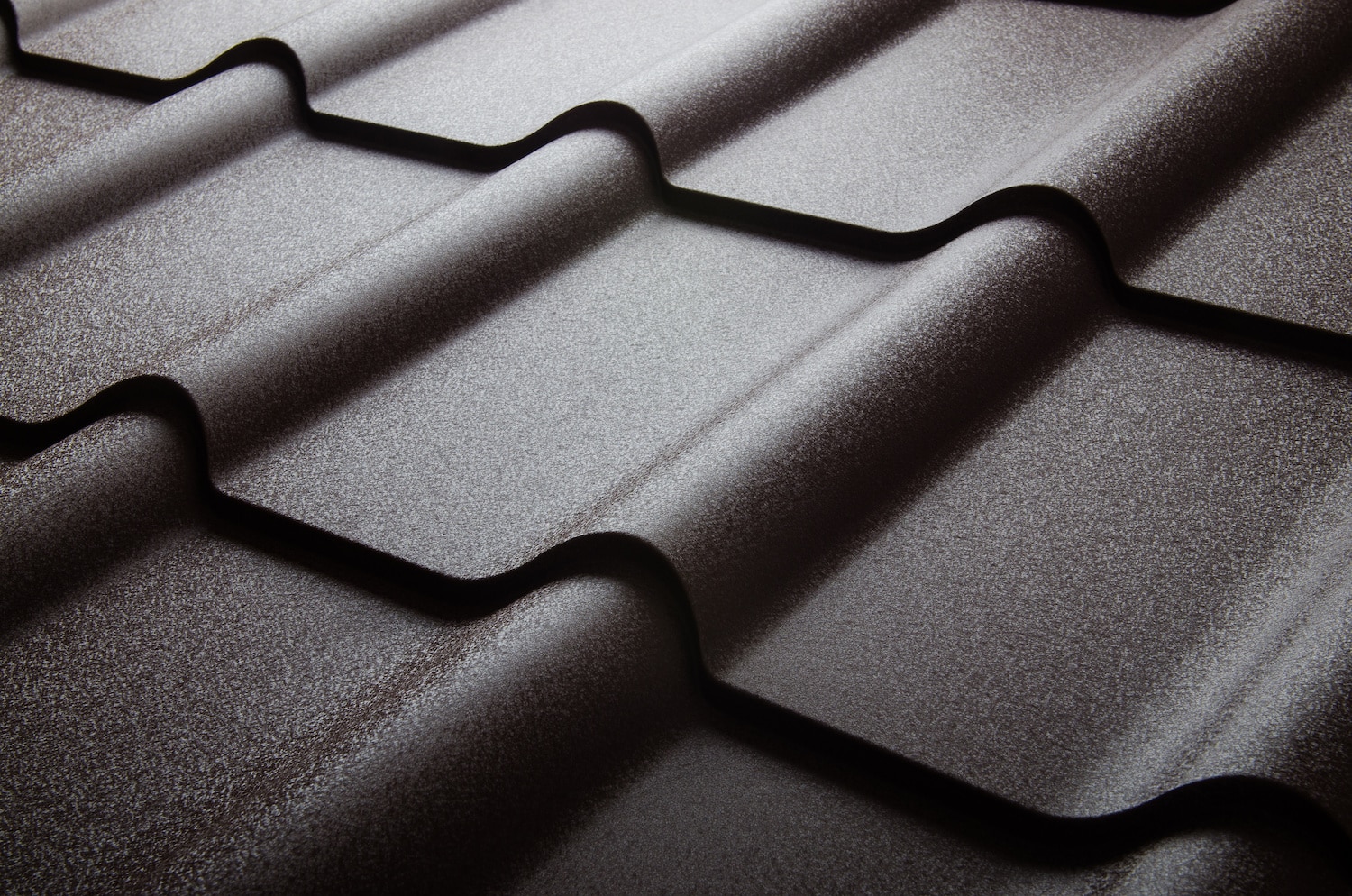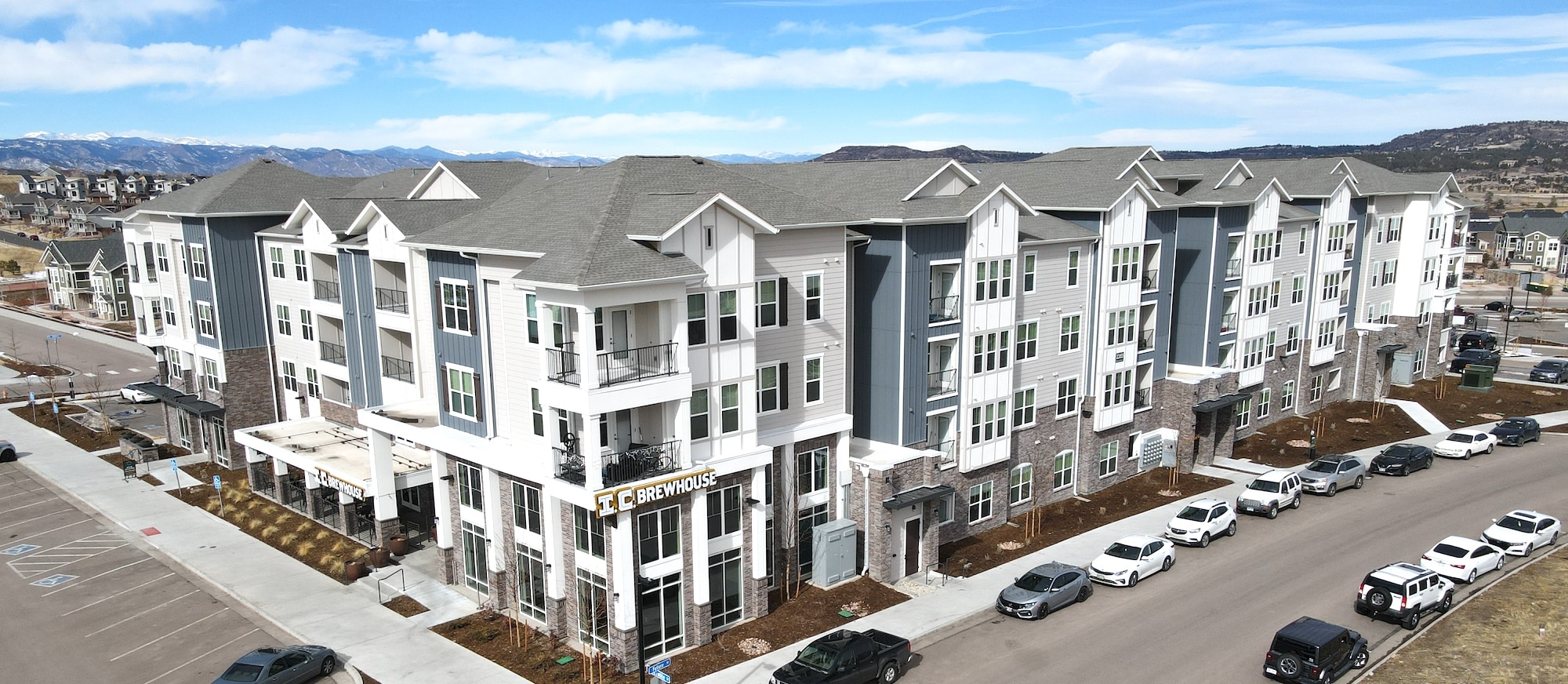There are pros and cons to every roofing system, and that includes commercial roof types.
Because residential and commercial roofing materials are so starkly different, a lot of people may not know all of the variations of roofing systems out there! Luckily for you, we’re digging deep into commercial roofing systems, the pros and cons, and everything you’ll want to know before you install or replace your commercial roof.
We’ll talk about what they are, why they’re important, and the pros and cons of each.
Table of Contents
What Is Considered a Commercial Roof?

Commercial roofing differs from residential roofing in that, more often than not, they are a flat roof and also a business or multi-family residential property. The type of buildings you might see commercial roofing materials installed on include:
- Apartments or multi-family residential buildings
- Big box stores
- Movie theaters
- Schools
- Hotels
- Strip malls
- And more!
You get the picture. These commercial properties have unique roofing needs and require a solid and durable commercial roof system, so the business or building owners can worry about what matters most— their business. [commercial roof types]
The Most Common Types of Commercial Roofing + Their Pros and Cons
Commercial structures most often contain flat or low-slope roofs. This means that the roof doesn’t have a high-pitched slope like a residential roof but instead is a singular plane at a very low slope (at least a 3:12 slope).
These roof systems can benefit from one of many different types of flat roof materials seen below. While there are a wide range of commercial roofing options, here are seven of the most common commercial roofing systems to choose from, plus their pros and cons. [commercial roof types]
1) TPO (Thermoplastic Polyolefin)

TPO roofs have been a very popular commercial roofing material in recent years. Made from a single-ply membrane, this lightweight material is easy to install, reflects UV rays and lasts up to 30 years. [commercial roof types]
Pros of TPO
- Heat reflective
- Energy efficient
- Lightweight
- Resistant to mold & mildew
Cons of TPO
- Susceptible to punctures & tears
- Vulnerable to high winds
- Can be susceptible to UV radiation over time
2) EPDM (Ethylene Propylene Diene Terpolymer)
EPDM roofing membranes are made of synthetic rubber, which is a blend of two petroleum-based substances: ethylene and propylene. EPDM comes in black or white colors and most commonly in 45 mils or 60 mils thickness. It can be installed with ballasts, mechanical attachments, or liquid adhesive seals on seams using specially formulated tape. [commercial roof types]
Pros of EPDM

- Cost-effective
- Last 20+ years
- 100% recyclable
- Energy-efficient
- Fire-resistant
Cons of EPDM
- Susceptible to shrinkage over time
- Not the most aesthetically pleasing material
- High installation costs
3) Architectural Sheet Metal
Architectural sheet metal is an ideal option for a commercial roofing system if you want something that lasts and looks great. This type of roof system usually consists of panels made from aluminum, stainless steel, or copper. Sheet metal roofs are long-lasting, durable, and highly reflective.

Pros of Metal
- Highly durable
- Great insulator
- Environmentally friendly
- Low-maintenance
- Fire-resistant
- Long-lasting (40-60+ years)
Cons of Metal
- Expensive upfront costs
- Must be professionally installed
- It doesn’t work on all types of commercial roofs
4) PVC (Polyvinyl Chloride)
PVC is a single-ply, thermal roofing solution. It carries an Energy Star and Cool Roof rating and is made from polyvinyl chloride (aka plastic), with a lower percentage of oil and petroleum than TPO or EPDM. [commercial roof types]
Pros of PVC
- Easy to repair
- Can last 30+ years
- Can be heat welded for a strong seam
Cons of PVC
- Expensive upfront costs
- Can crack or become damaged in cold climates or high foot traffic
5) Modified Bitumen

Modified bitumen is a popular commercial roofing system that consists of asphalt and other modifiers such as rubber, polyester, or fiberglass. It comes in rolls and can be installed with hot asphalt or cold adhesive. [commercial roof types]
Pros of Modified Bitumen
- Great for high-traffic areas
- Easy to install in smaller spaces or custom roofs
- Multiple layers and plies make it very strong and water resistant
Cons of Modified Bitumen
- It can be an expensive option
- Susceptible pooling water
- Dangerous installation (torch down method)
6) BUR (Built Up Roofing)
Built-up roofs have been around for hundreds of years, eventually becoming a popular material that is used today for flat roofs. It’s literally built up of multiple layers of alternating asphalt, felt or reinforcing fabrics, bitumen, and other plies. It’s highly reliable and durable and a great option for most commercial roofs. [commercial roof types]

Pros of BUR
- Excellent waterproofing
- UV and fire resistance
- Low-maintenance roof
- Affordable
Cons of BUR
- Can crack or blister over time
- Joints can split or open
- Risk of pooling water
7) Green Roofs
Green roofs are becoming increasingly popular and can be a great option for commercial buildings. These roofs use vegetation to manage stormwater runoff, reduce energy consumption, provide wildlife habitat, and improve air quality. [commercial roof types]
Pros of Green Roofs
- Energy efficient
- Reduced stormwater runoff
- Increases property value
- They can be used for gardening or outdoor space for people to enjoy
Cons of Green Roofs

- High installation costs
- It can be difficult to maintain
- Susceptible to mold and mildew
- The roof needs to be able to support the weight of soil and vegetation. [commercial roof types]
No matter what type of commercial roofing businesses go with, they need it to be:
- Low maintenance
- Durable
- Long-lasting
- Have a good warranty
It is also vital to ensure if your commercial structure requires a lot of foot traffic on the roof, you need a material that won’t tear or get damaged. If you plan to have events and entertainment on the rooftop, that needs to be considered as well. You want something aesthetically pleasing but also durable and reliable. The pros at Tectum Roofing can help you determine the best fit for your new commercial roof. [commercial roof types]
Work With a Commercial Roofing Expert
Whether you’re roofing a new commercial building or looking to repair or replace your existing roof, Tectum Roofing is the team to help. Our roofing professionals have the knowledge and expertise to help you choose the best possible roofing system for your business and provide the warranties and materials you need to be protected for years to come. [commercial roof types]
For your next commercial roofing project, choose Tectum Roofing as your roofing partner. Get an estimate today!



